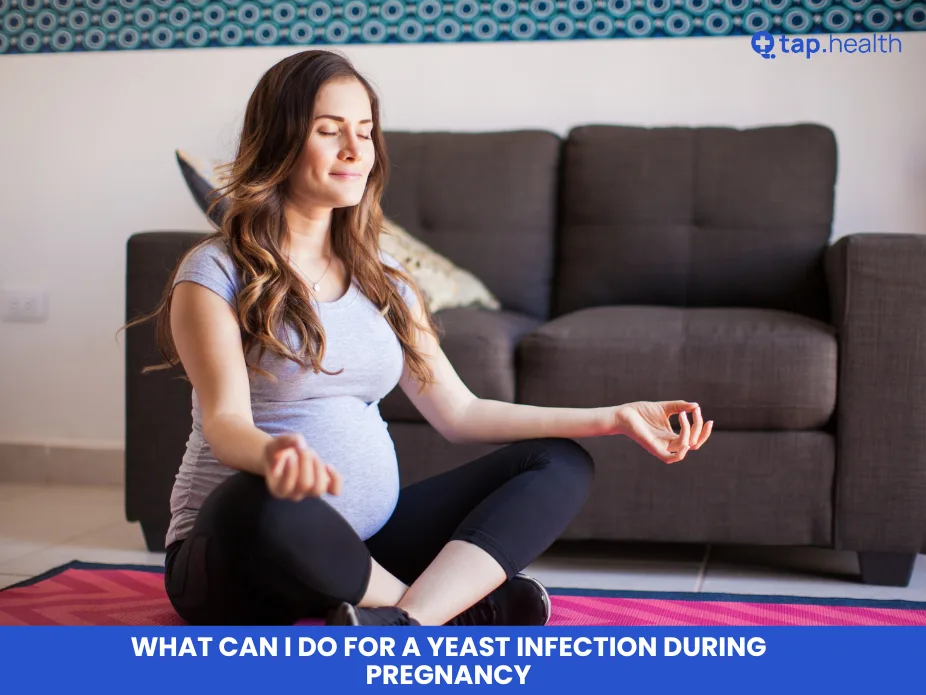Yeast infections, medically known as vaginal candidiasis or vaginal thrush, are extremely common in pregnancy. Hormonal surges, especially higher estrogen, increase glycogen in the vagina — a perfect food source for Candida albicans. A slightly suppressed immune system during pregnancy also makes overgrowth more likely. Nearly 1 in 3 pregnant women experience at least one episode.
Common Symptoms of Vaginal Candidiasis in Pregnancy
- Intense itching and irritation in and around the vagina
- Thick, white, odorless discharge that looks like cottage cheese
- Burning sensation while peeing or during intercourse
- Redness and swelling of the vulva
If you notice these signs, never self-diagnose — bacterial vaginosis, trichomoniasis, or group B strep can mimic yeast infection symptoms.
What Can I Do for a Yeast Infection During Pregnancy? Safe Treatment Options
1. Always Consult Your Obstetrician First
Pregnancy limits treatment choices. Oral fluconazole (Diflucan) is generally avoided, especially in the first trimester, due to possible birth defect risk. Your doctor will confirm diagnosis with a quick vaginal swab and prescribe pregnancy-safe options.
2. Proven and Safe Antifungal Treatments
The American College of Obstetricians and Gynecologists (ACOG) and CDC recommend topical azoles for 7 days:
- Miconazole (Monistat 7)
- Clotrimazole (Canesten, Lotrimin, Gyne-Lotrimin)
- Terconazole (less common but Category C, still used when needed)
Seven-day regimens are preferred over 1- or 3-day courses during pregnancy for higher cure rates and lower recurrence.
3. Gentle Natural Remedies to Relieve Itching and Discomfort
These complement medical treatment (do not replace it):
- Virgin coconut oil applied externally — natural antifungal and soothing
- Plain, unsweetened Greek yogurt with live cultures eaten daily or applied externally
- Probiotic supplements (Lactobacillus rhamnosus GR-1 & L. reuteri RC-14 strains proven helpful)
- Sitz bath with 1 cup raw apple cider vinegar in warm water (10–15 minutes)
4. Lifestyle Changes That Speed Healing and Prevent Recurrence
- Wear 100 % cotton underwear and loose clothing
- Sleep without underwear when possible
- Wipe front to back
- Avoid scented pads, tampons, soaps, bubble baths, and douches
- Change out of wet swimsuits or sweaty workout clothes immediately
- Keep blood sugar stable — high glucose feeds yeast (important even without gestational diabetes)
Real Stories: How Indian Moms Found Fast Relief
Priya from Mumbai (second trimester) used Monistat-7 cream along with cotton panties and daily probiotics — symptoms gone in 4 days.
Aarti from Pune struggled with recurrent infections until she combined clotrimazole suppositories with coconut oil application and sugar-reduced diet — no recurrence in third trimester.
Expert Advice from Dr. Kavita Sharma, Obs-Gynae, Delhi
“Almost 70 % of my pregnant patients get at least one yeast infection. Topical 7-day azole therapy is safe and effective throughout pregnancy. Never use single-dose oral fluconazole without specialist advice.”
Prevention Tips for Vaginal Yeast Infections in Pregnancy
- Eat probiotic-rich foods daily (curd, kefir, idli-dosa batter)
- Limit refined sugar and maida
- Stay hydrated
- Practice meticulous hygiene without over-washing
- Change pads frequently during heavy discharge days
When to Call Your Doctor Immediately
Seek urgent care if you have:
- Fever or lower abdominal pain
- Foul-smelling or green/yellow discharge
- Bleeding or spotting
- Symptoms not improving after 7 days of treatment
Untreated severe yeast infections can rarely lead to chorioamnionitis or preterm labor risk.
Can Recurrent Yeast Infections During Pregnancy Signal Gestational Diabetes?
Yes! Persistent or frequently recurring vaginal candidiasis is sometimes the first clue of undiagnosed gestational diabetes. High blood sugar creates an ideal environment for Candida growth. If you’re battling repeated episodes despite treatment and lifestyle changes, ask your doctor for a glucose challenge test.



